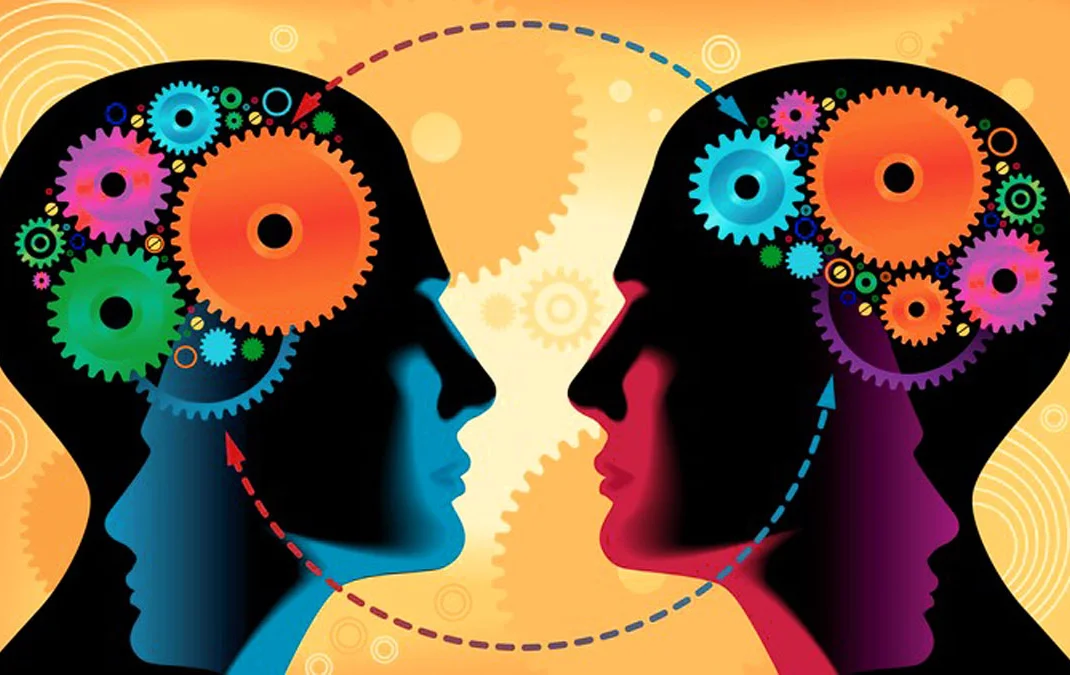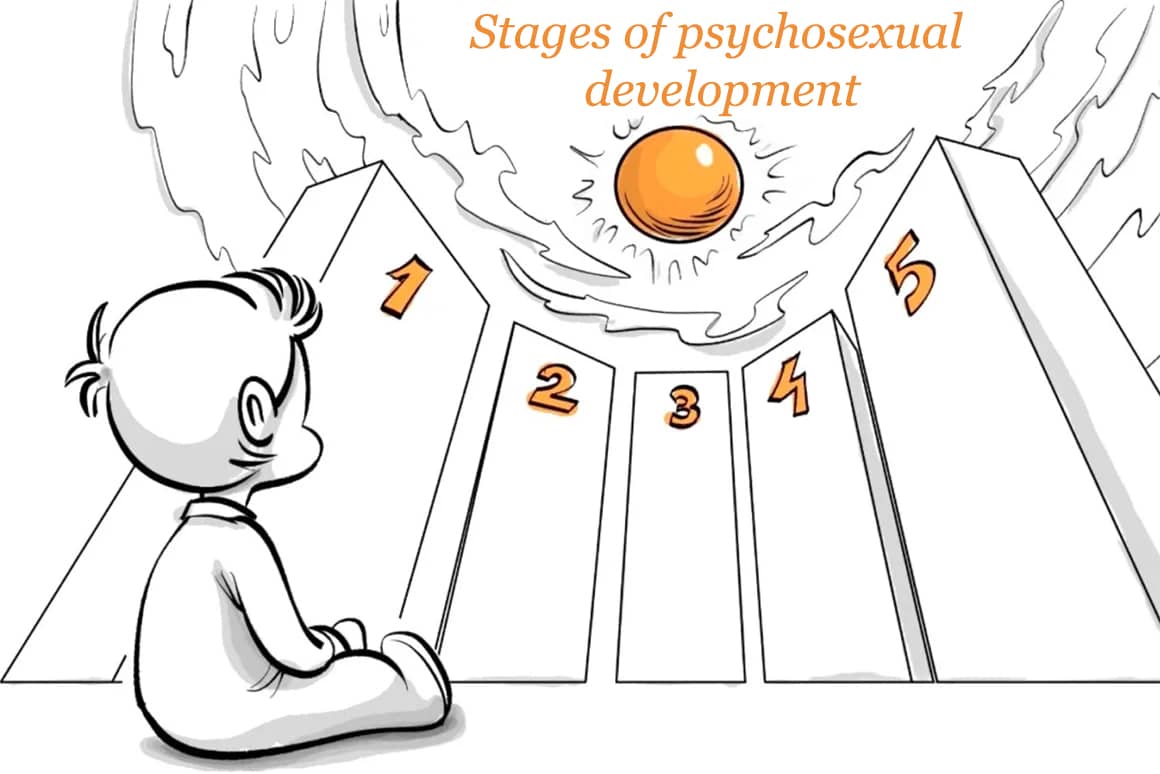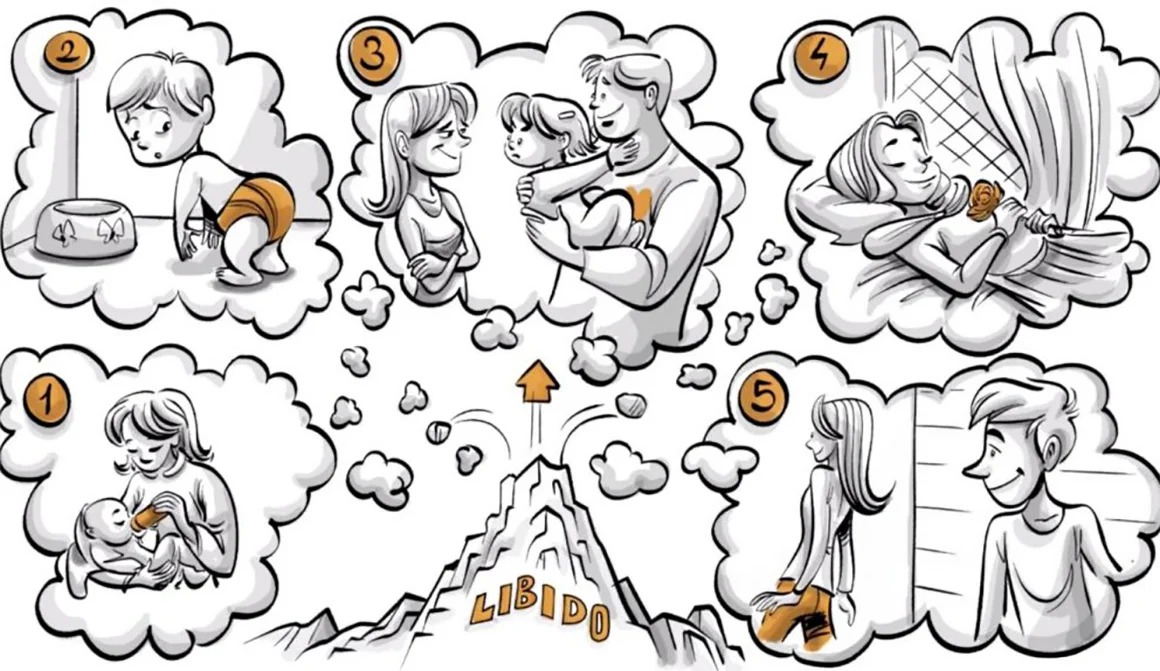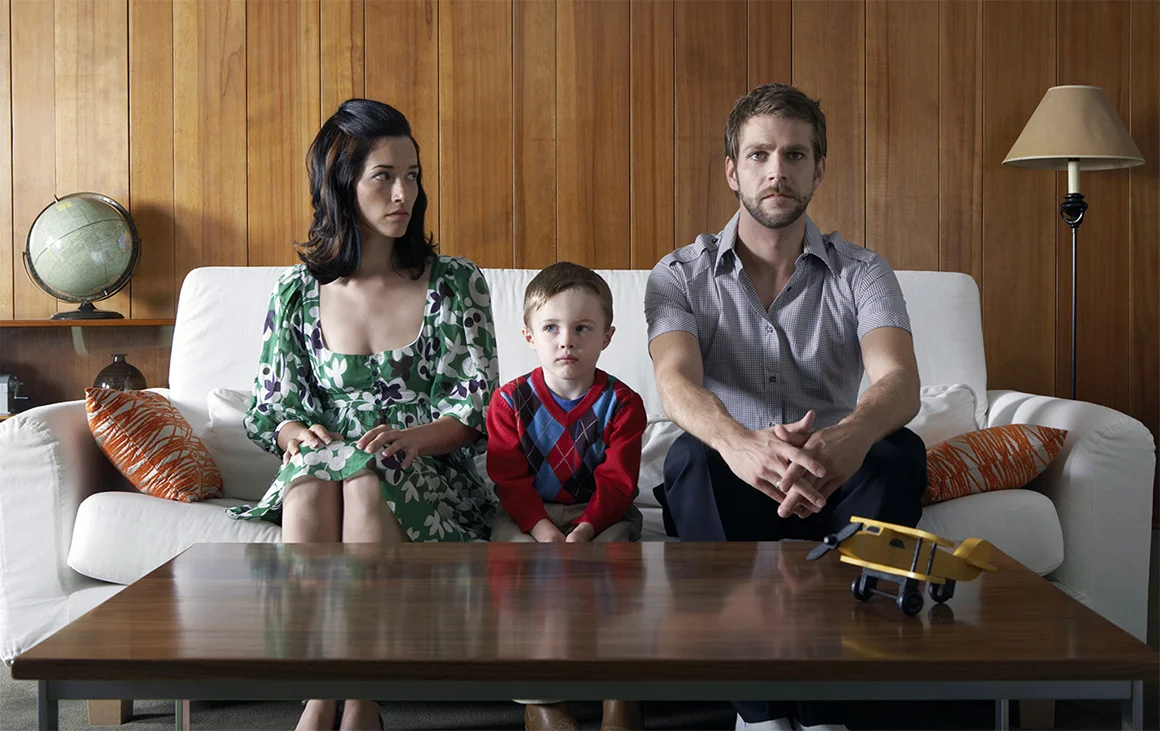Psychosexual development is a term used in Sigmund Freud’s psychoanalytic theory to describe a series of stages that a person goes through during the development process, from early childhood to adulthood. Each stage is characterized by specific erotic tendencies and ways of obtaining pleasure, which influence the formation of personality and behavior.
Psychosexual development includes five stages that Freud named the oral, anal, phallic, latent, and genital stages. At each of these stages, according to Freud, a person goes through certain internal conflicts that can cause stressful situations and impact their mental health later on. If these conflicts remain unresolved, it can lead to a developmental delay at a certain stage and the creation of ineffective coping strategies in adult life.

The Role of Psychosexual Development in Psychology
Psychosexual development plays a significant role in psychoanalysis, emphasizing the importance of early childhood in the formation of adult personality and behavioral traits. According to Freud, erotic needs and interactions during various stages of development can determine key aspects of personality and behavior, including their impact on relationships and the ability to cope with stress.
Successful progression through each developmental stage, according to Freud, leads to healthy psychosexual development, which facilitates the formation and maintenance of future relationships. Particularly important are the relationships with parents and their interactions with the child at each stage, which affect the child’s ability to establish and maintain healthy relationships in adult life.
The Connection Between Psychosexual Development and Personality Formation
Psychosexual development directly influences personality formation according to Sigmund Freud’s theory. This occurs through a series of stages that span from birth to adulthood. At each stage, the primary focus is on a specific body zone that serves as a source of satisfaction.
An important element of this process is how the child deals with conflicts and stress at each stage. For instance, if an infant frequently encounters difficulties or stress during the oral stage (from birth to 1 year), when the primary source of pleasure is related to sucking and swallowing, this can lead to the formation of a “fixation” at this stage of development. In adulthood, this might manifest as a constant desire to eat, smoke, or talk.
This process continues at each subsequent stage (anal, phallic, latent, and genital), and different ways of resolving conflicts and managing stress at these stages can influence adult behavior and personality.
It is important to note that while Freud’s theory of psychosexual development has significantly influenced psychology, it has also faced much criticism, and there are other approaches to understanding personality development.
The Impact of Psychosexual Development on Behavior and Relationships
According to Freud’s theory, psychosexual development influences an individual’s behavior and relationships in adult life.
Firstly, fixation at any developmental stage can lead to certain types of behavior in the future. For example, fixation at the oral stage may manifest in adult behavior as overeating, smoking, or excessive talking. Similarly, fixation at the anal stage can result in either excessive organization or disorderliness.
Secondly, an individual’s ability to handle conflicts and anxieties arising at each stage affects their ability to form and maintain healthy relationships. For instance, conflicts at the phallic stage, related to the Oedipus or Electra complex, can influence relationships with the opposite sex in the future.
Thus, psychosexual development impacts the formation of personality and behavior, which in turn determines the quality and nature of an individual’s relationships.

Stages of Psychosexual Development
Psychosexual development consists of five stages identified by Sigmund Freud: oral, anal, phallic, latent, and genital. Each stage is characterized by a specific body zone that becomes the main source of sexual satisfaction and by conflicts that need to be resolved for successful progression to the next stage.
- Oral Stage (0-1 year): Associated with pleasure through the mouth, including sucking and swallowing.
- Anal Stage (1-3 years): Focuses on control over bodily functions, particularly in learning hygiene.
- Phallic Stage (3-6 years): Characterized by an increased sexual interest in one’s own body.
- Latent Stage (6 years – puberty): A period of relative calm in sexual interests.
- Genital Stage (puberty – adulthood): Marked by the resurgence of sexual interest and the establishment of mature sexual relationships.
According to Freud, this developmental process influences the formation of personality and behavior in adulthood. Conflicts that arise at each stage and are not properly resolved can lead to “fixation” and specific behavioral patterns later in life.
Oral Stage (0-1 year)
The oral stage is the first stage of psychosexual development according to Freud, lasting from birth to about the first year of life. During this period, the child derives pleasure from activities involving the mouth, including sucking, swallowing, and later, chewing.
At this time, the child is dependent on parents or caregivers to meet their needs, especially for food. The way these needs are met can have long-term effects on personality development. If the child’s needs are properly met, they develop a sense of trust and security. If needs are not met or are met irregularly, the child may develop feelings of anxiety and distrust.
This time is also important for the initial formation of the child’s relationships with the world around them, including the first contact with parents and the satisfaction of their needs. The child begins to explore their environment through the mouth, literally “tasting” objects around them, which helps them start forming representations of the world and understanding the distinction between “self” and “not self.”
However, if the child’s needs are denied or if they experience stress during this period, it can lead to issues such as anxiety, constant striving for satisfaction, frequent eating, or refusal to eat. In adulthood, this can manifest as stress eating, problems with alcohol or tobacco, and communication issues such as excessive talkativeness or, conversely, introversion.
It’s important to understand that the oral stage lays the foundation for all subsequent stages of psychosexual development. Successful progression through the oral stage creates a foundation for trusting relationships and healthy interactions with the world in the future.
Anal Stage (1-3 years)
The anal stage is the second stage of psychosexual development according to Freud, typically occurring between 1 and 3 years of age. At this time, the primary source of pleasure is controlling bodily functions, particularly in learning hygiene.
This is the time when children start toilet training, learning to control their sphincter and understanding the process of managing their physiological needs. Additionally, at this stage, toddlers begin to realize their independence.
Parental support and positive attitudes during this period are crucial, as their reactions to the child’s toilet training can have long-term impacts on the child’s personality. If a child is not allowed to control their bodily functions, for example, if parents are overly strict about toilet training or, conversely, completely ignore it, it can lead to the formation of certain personality traits.
If training occurs without pressure and stress, the child develops a sense of trust and competence. If training is accompanied by stress and pressure, the child may develop feelings of shame and doubt about their abilities.
Excessive pressure can lead to the development of a personality that reacts strongly to control, is prone to perfectionism, fear of failure, and overcompensation. On the other hand, a lack of discipline and boundaries in this process can contribute to the development of a more lax, disorganized personality that pays little attention to boundaries and cleanliness.
It’s important to remember that this is just one theory of development, and while it offers interesting insights into child development, it is not exhaustive or unequivocally accurate for all cases.
Phallic Stage (3-6 years)
The phallic stage is the third stage of psychosexual development according to Freud, usually occurring between 3 and 6 years of age. During this time, the child begins to recognize differences between genders, often accompanied by increased interest in their genitals.
An important part of this stage is the so-called “Oedipus complex” in boys and “Electra complex” in girls. According to Freud, children at this stage experience attraction to the opposite-sex parent and jealousy toward the same-sex parent. This leads to conflict, as children want to identify with the same-sex parent but also feel jealousy toward them.
Successful resolution of this conflict, according to Freud’s theory, involves a process of identification, where the child begins to adopt the norms and values of their same-sex parent.
The phallic stage can have significant impacts on adult personality, according to Freud’s theory. He believed that unresolved conflicts during this period could lead to various problems in adult life.
If a child does not successfully overcome the “Oedipus complex” or “Electra complex,” it can lead to “phallic fixation.” Manifestations of phallic fixation can include indecisiveness, experiencing inappropriate or insufficient understanding of their gender, rejection of their sex or gender identity, sexual dysfunction, or an excessive focus on sexuality or physical attractiveness.
For example, a person might become overly confident and dominant, striving to emphasize their gender identity. Conversely, they might become insecure about their sexual abilities. There could also be difficulties in forming healthy romantic and sexual relationships in adult life.
It’s important to remember that these issues and consequences are only assumptions based on Freud’s theory, and they do not always apply or manifest in reality. Freud’s theory serves more as a tool for analyzing and understanding certain aspects of personality development rather than a definitive truth.
Latent Stage (6 years – puberty)
The latent stage is the fourth stage of psychosexual development according to Freud, typically occurring between the ages of 6 and the onset of puberty (around 12 years). “Latent” here means “hidden” or “inactive,” reflecting that during this period, sexual desires and interests are temporarily put on hold.
It is believed that during this time, children focus on learning, playing with peers, and developing social skills and abilities. This is a period of developing social connections, learning skills, and self-identification.
Instead of focusing on physical and sexual development, children at this stage are more interested in relationships. They learn to make friends, work in groups, and adapt to social norms and rules.
Freud believed that problems at this stage could lead to “latent fixation” in adulthood, which might manifest as social isolation, difficulties in learning, or problems with communication and relationships with others.
The latent stage is important for forming personality and behavior in adults, as it is a time when the child actively learns, develops social skills, and forms their understanding of the world and their place in it.
If problems or stressful situations arise during this period, it can affect adult personality. For example, if a child experienced difficulties in socialization, this can lead to social isolation or communication difficulties in adulthood. If the child faced problems in learning, this can lead to low self-esteem, work-related or educational stress, and difficulties in career advancement.
On the other hand, successful progression through this stage contributes to the development of strong social skills, the ability to learn and adapt, and a positive attitude towards learning and work. Adults who successfully pass this stage are usually able to establish and maintain healthy relationships, successfully cope with educational tasks, and have the skills to achieve career and personal goals.
Genital Stage (puberty and beyond)
The genital stage is the fifth and final stage of psychosexual development according to Freud, beginning with puberty (around age 12) and continuing into adulthood. During this period, sexual drive becomes a more central element of personality.
It is believed that sexual drive is now directed outside the family, leading to the formation of mature romantic and sexual relationships. The main task at this stage is to develop the ability to establish and maintain relationships.
According to Freud’s theory, the genital stage has a significant impact on adult personality and behavior, as it is a time when the ability to establish and maintain healthy romantic and sexual relationships develops.
If this stage is successfully completed, the adult will be able to form and maintain long-term romantic relationships, find sexual satisfaction, and balance in sexual life. Additionally, they will be able to harmoniously combine their needs and desires with those of their partner.
However, if conflicts or unresolved problems from previous stages arise, they can manifest in adult life as problems in romantic and sexual relationships. This can include inconsistency in relationships, difficulties in forming long-term relationships, sexual dysfunction, and problems with satisfying their sexual needs or those of their partner.
It should be noted that despite Freud’s belief that development passes through these sequential stages, modern psychologists consider this model overly simplistic, and many of its aspects are criticized today.

Critique of Sigmund Freud’s Theory of Psychosexual Development
Sigmund Freud’s theory of psychosexual development was one of the first systematic attempts to explain human development from infancy to adulthood. It significantly influenced psychology and psychotherapy, contributed to our understanding of unconscious processes, and introduced new methods for exploring personality.
However, it is important to highlight that many of Freud’s concepts and ideas are controversial in terms of their scientific validity and reliability. His theory of psychosexual development has been repeatedly criticized by other scientists and researchers. One of the main criticisms is its simplification and limitations.
Freud focused predominantly on sexuality, not giving enough attention to other aspects of development such as cognitive, emotional, and social factors. Additionally, many believe that Freud overemphasized the idea that early childhood experiences have a decisive impact on adulthood, without considering that changes and development continue throughout life.
Modern Alternatives and Supplements to Freud’s Model
There are many modern theories and models of development that have been developed as alternatives or supplements to Freud’s theory. They take into account a broader range of factors and more accurately reflect the complexity of human development.
- Jean Piaget’s Theory of Cognitive Development: Piaget proposed four stages of cognitive development that describe how children learn to understand the world around them. This theory complements Freud’s as it considers cognitive development rather than just sexual development.
- Erik Erikson’s Theory of Psychosocial Development: Erikson expanded Freud’s theory by proposing eight stages of psychosocial development that span the entire human lifespan. Each stage involves specific social and emotional tasks.
- John Bowlby’s Attachment Theory: Bowlby researched the importance of early relationships with parents for future social-emotional development.
- Socio-cultural Development Theories: Theories like Vygotsky’s emphasize the role of social and cultural contexts in human development.
- Biological and Neuroscientific Approaches: Modern research in biology and neuroscience has also provided new understandings of human development, including the influence of genetics and brain function.
These and other approaches offer a more comprehensive and diverse understanding of human development, considering the importance of social, emotional, cognitive, physical, and cultural factors alongside sexual development.

The Significance of Psychosexual Development for Understanding Personality and Behavior
Psychosexual development plays an important role in shaping an individual’s personality and behavior, according to Freud’s theory. It suggests that experiences gained during early childhood while passing through various stages of psychosexual development significantly influence adult personality and behavior.
- Formation of Personality: Freud believed that the conflicts and stressors a child encounters at each stage affect the formation of their personality. For example, issues arising during the oral stage may lead to dependent or aggressive behavior in later life.
- Defense Mechanisms: Psychosexual development is also linked to the development of defense mechanisms, which are crucial elements of personality and behavior. These defense mechanisms help individuals cope with internal conflicts and stresses.
- Behavior Formation: Key aspects of psychosexual development include sexual and aggressive impulses, which Freud believed play a central role in human behavior. For instance, he asserted that individuals fixated at the phallic stage might have issues with authority and rivalry in adulthood.
- Formation of Relationships: Psychosexual development also influences the formation of an individual’s relationships. For example, Freud believed that the Oedipus complex, which arises during the phallic stage, forms the basis for subsequent romantic and sexual relationships.
However, it is important to consider that Freud’s theory has been the subject of numerous critiques and is now just one of many theories of development. Modern research emphasizes that the development of personality and behavior depends on various factors, including biological, cultural, social, and cognitive aspects, in addition to sexual development.
Moreover, many contemporary theories suggest that development does not occur as rigidly in stages as Freud believed and can be much more flexible and individual. Despite this, understanding Freud’s theory of psychosexual development can provide deep insights into certain aspects of human behavior and personality.

Possible Directions for Future Research
Future research in the field of psychosexual development can progress in various directions to deepen our understanding of this crucial aspect of human development. Here are some of them:
- Interdisciplinary Approach: Combining different approaches to studying psychosexual development, such as biological, social, cultural, and cognitive, can help create a more comprehensive and complete picture of this process.
- Cross-Cultural Studies: Investigating psychosexual development in different cultures will help better understand how cultural factors influence this process and how they interact with biological factors.
- Studying Psychosexual Development in the Context of the LGBTQ+ Community: Much of the research on this topic is based on heteronormative assumptions. Research in this direction will expand our understanding of psychosexual development.
- Consequences of Disruptions at Different Stages: More in-depth research is needed to uncover the consequences of various problems or traumas that occur at different stages of psychosexual development.
- Impact of Modern Technologies: Given how digital technologies are changing society and relationships, future research can explore how they affect human psychosexual development.




